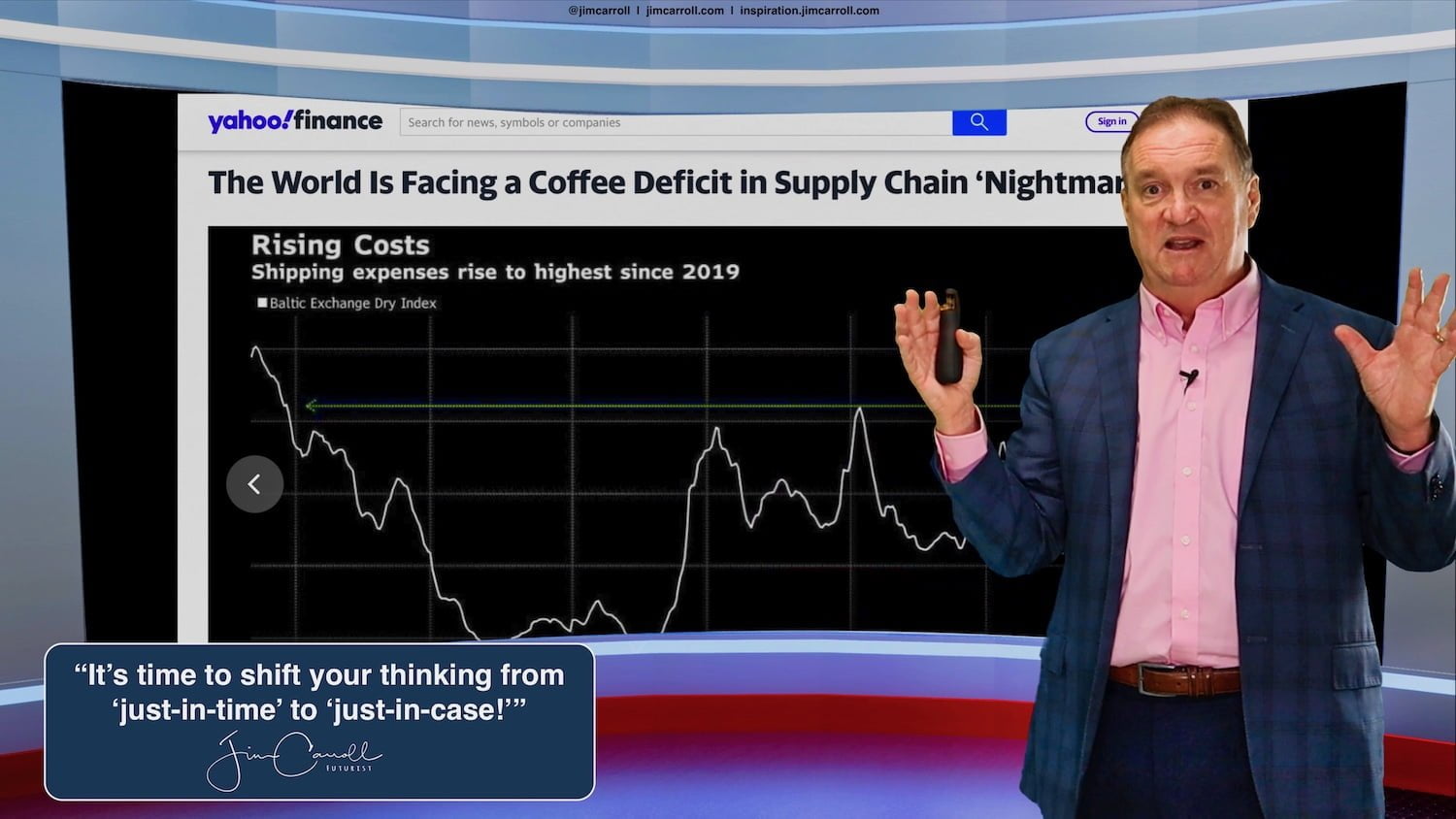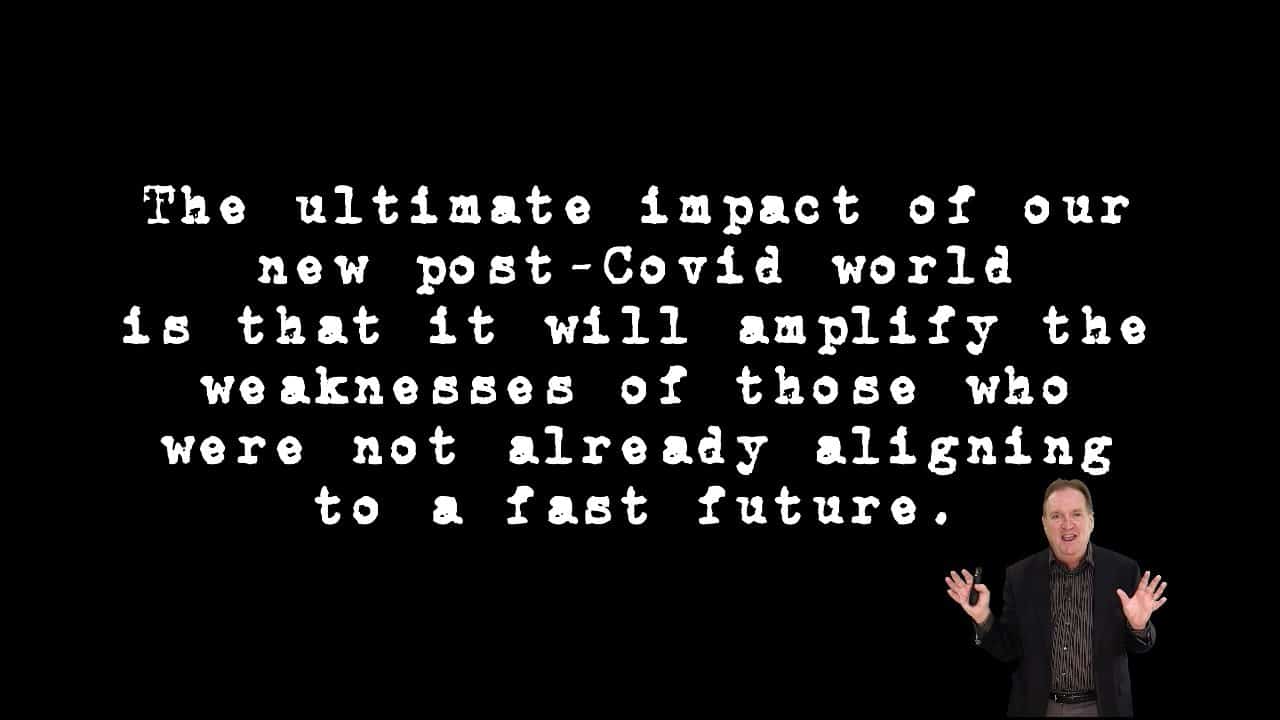“It’s time to shift your thinking from ‘just-in-time’ to ‘just-in-case!’” – Futurist Jim Carroll

First, they came for my golf! Now they might come for my coffee! This is getting brutal!
Trend: Globalization is broken – that is one of the most significant and lasting impacts of Covid-19. While the stock market is rocking and particular sectors, underneath the froth lies a deep pile of cooperative wreckage.
Do you notice how you can’t buy anything? Bicycles, exercise equipment, lumber … without availability or price inflation issues? The careful construct of intertwined global supply chains is massively damaged, and it is going to be extraordinarily difficult to fix.
- it’s pretty clear that supply chains are broken: any discussion today is all about resilience, backup, multiple sourcing. Some companies have strategies in place that provide for triple or quadruple sourcing for product
- Covid-19 didn’t just break them – it highlighted what was wrong with them – in that companies and nations did not build any sort of resilience into their global supply chains
- fast trends highlighted this weakness: as the world rushed to online shopping, companies that were exposed were quickly exposed!
- it has weaponized global trade: we saw this early on as nations locked down supplies with PPE, and we are seeing it now in real-time as countries block vaccine exports. This is a new fast trend with major implications
- governments are finding new barriers: the pandemic provided a convenient opportunity to revive talk and action around protectionism
- trust has been eroded: the impact of all of this is that global trust has broken down on massive scale
- damage must be fixed: expect this issue to be the focus of much corporate and global organizational discussion over years to come. G7 meetings will spend a lot of time on this issue, and companies will revise global trade contracts to better protect themselves
- localization accelerates: countries and companies are obviously moving to produce locally when and where they can, but as I identify in the video, many have not addressed the skills and other issues that come with this
- and so global trade patterns are forever transformed: we aren’t going back to where we were – we are only going to where we will be!
It’s not as though supply chains and global trade were already being transformed. Protectionist moves and the impact of the 2008-09 downturn were already dominating the trend:
- global trade was already falling in 2019 due to global politics
- and it was already falling as a result of the economic downturn of 2009
- global supply chains ceased expanding after 2008!
- it then shrunk by 9.2% through 2020
This is all pretty obvious – so what does it mean?
Upheaval, resilience, skills issues, and more!
Take this quote and pin it to your wall!

Some weeks back, when the fragility of the supply chain was highlighted by the fact that one ship was stuck in the Suez Canal, I decided to take apart a few of today’s news headlines to put into perspective a key reality: You often don’t appreciate the seismic scope of the shifts while you immersed in them.
I reference a few other videos in the clip. Here’s one I did a few weeks ago: “what’s the future of globalization? How will trade patterns and supply chains change as a result of what’s happened in the last year?”
This is leading the emergence of a new focus on resilience – to deal with volatillty. The Chief Resilience Officer? It’s in this show:




GET IN TOUCH
Jim's Facebook page
You'll find Jim's latest videos on Youtube
Mastodon. What's on Jim's mind? Check his feed!
LinkedIn - reach out to Jim for a professional connection!
Flickr! Get inspired! A massive archive of all of Jim's daily inspirational quotes!
Instagram - the home for Jim's motivational mind!